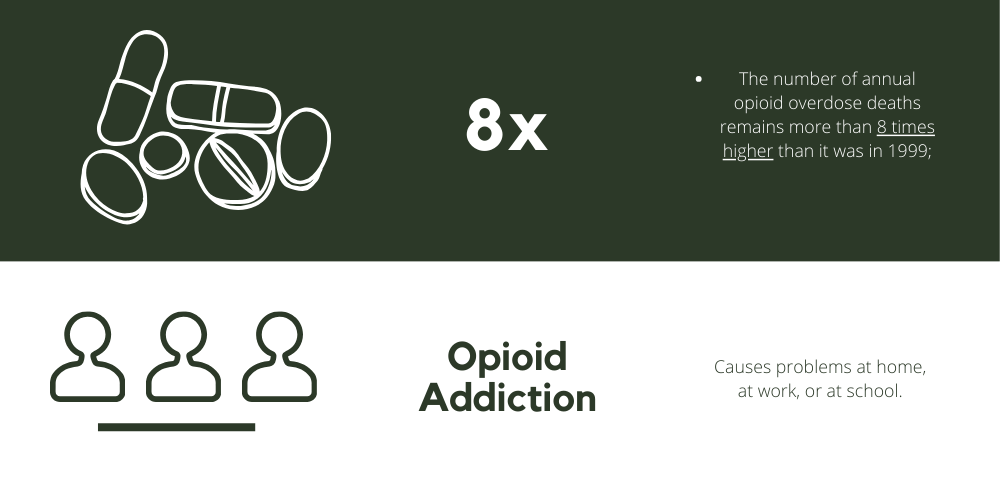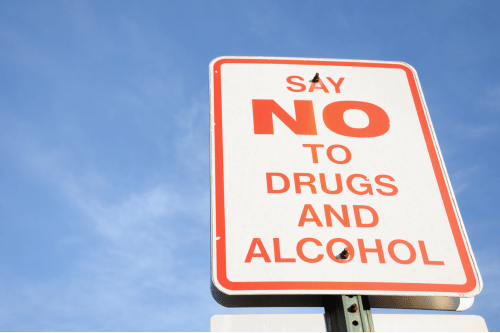
Opioid Detox Orange County
Opioid detox in Orange County is a medical process that removes opioids such as oxycodone, morphine, codeine, methadone, fentanyl, hydromorphone, and tramadol from the body. Detox helps reduce physical dependence while easing withdrawal symptoms safely. At Sullivan Recovery in Mission Viejo, our drug detoxification program focuses on restoring both physical and mental health through medical care and therapy.
Opioid addiction affects the brain and body by altering how pain and pleasure are processed. When a person stops using opioids, withdrawal symptoms such as anxiety, nausea, and insomnia can occur. A medically supervised detox ensures safety, reduces discomfort, and prepares patients for long-term recovery treatment.
Recognizing the signs of substance dependence early can prevent overdose or relapse. Common symptoms include tolerance, strong cravings, and withdrawal when use stops. Behavioral signs such as isolation, neglecting responsibilities, or changes in mood can also indicate addiction.
Patients dependent on opioids like oxycodone, codeine, or fentanyl may experience physical pain, anxiety, and sleep problems between doses. Attempting rapid detox without medical help can be dangerous. At Sullivan Recovery, each patient receives physician-guided detox with medication and therapy to manage symptoms safely.
The opioid epidemic remains one of the most serious public health crises in the United States. According to the Centers for Disease Control and Prevention (CDC), more than 80,000 opioid-related overdose deaths occurred in 2023, with fentanyl being a major cause (CDC.gov).
In California, the California Department of Public Health (CDPH) reports that opioid-related deaths have risen steadily, particularly in Orange County (cdph.ca.gov). Many of these deaths involve synthetic opioids such as fentanyl and prescription painkillers like hydromorphone and oxycodone.
This ongoing opioid epidemic highlights the need for accessible detox and mental health support. Sullivan Recovery’s outpatient programs help patients regain stability and avoid relapse through safe, evidence-based treatment.

Outpatient rehab supports recovery while allowing patients to maintain daily responsibilities such as work, school, or family life. At Sullivan Recovery in Orange County, this model offers an accessible path to sobriety without the need for hospitalization. Each detox program combines professional drug detoxification, therapy, and medication support to help patients manage cravings, improve mental health, and achieve stability.
Our outpatient treatment center uses evidence-based therapy methods, including cognitive-behavioral techniques, to help patients understand the root causes of substance abuse. Licensed physicians and psychiatry professionals oversee every stage of care, ensuring patients safely detox from opioids, including fentanyl, methadone, oxycodone, and morphine. Medication-assisted treatment with buprenorphine, methadone, or naltrexone supports the body’s recovery and reduces the risk of relapse.
Unlike inpatient care, outpatient detox focuses on flexibility and ongoing connection. Patients receive continued counseling, mental health monitoring, and relapse prevention education. This comprehensive structure helps them rebuild healthy habits and reach long-term sobriety. As one of Southern California’s trusted treatment programs, Sullivan Recovery provides effective, compassionate care that promotes physical healing and emotional balance.

The treatment process at Sullivan Recovery follows a medically guided approach that supports both the body and mind through detox and recovery. Each patient begins with a full medical and psychiatric evaluation led by a physician specializing in addiction medicine. This assessment identifies the type of opioid used—such as tramadol, codeine, hydromorphone, or oxycodone—and evaluates the severity of physical dependence and any related mental health concerns.
Once the evaluation is complete, a personalized plan is created that may include medication-assisted treatment (MAT) using buprenorphine, methadone, or naltrexone to reduce cravings and withdrawal symptoms. This method helps the brain stabilize after prolonged opioid use and lowers the risk of opioid overdose during early recovery. Patients receive ongoing supervision from medical professionals throughout detox to ensure their health and safety.
After stabilization, patients participate in therapy and rehab sessions focused on behavioral change and emotional regulation. The combination of medication, therapy, and psychiatry support strengthens recovery outcomes. At Sullivan Recovery, each patient benefits from an integrated care model that treats addiction as a disease of both body and mind—helping individuals reclaim control, maintain sobriety, and prepare for long-term success beyond detox.
A physician evaluates the patient’s opioid use, including drugs like morphine, fentanyl, or methadone. The evaluation includes medical testing and mental health screening.
Medication-assisted treatment (MAT) may include buprenorphine, methadone, or naltrexone to ease withdrawal and reduce cravings. Each medication helps stabilize the brain and prevents relapse.
Patients attend individual and group therapy sessions that focus on behavioral change, emotional regulation, and relapse prevention. Psychiatry care supports co-occurring mental health conditions to improve overall recovery outcomes.
After detox, patients can continue with outpatient rehab, counseling, or support groups. This transition ensures long-term stability and continued progress toward sobriety.

Accessibility and affordability are priorities at Sullivan Recovery. Our treatment center accepts most major insurance plans that cover detox, rehab, and mental health services under behavioral health benefits.
Patients can verify their insurance coverage with our admissions team before beginning treatment. For those without active insurance, flexible payment plans are available. This ensures every patient can access care when they need it most.
Our staff helps patients navigate insurance claims and paperwork so they can focus on recovery, not financial stress.
Medication plays an essential role in opioid detox by managing withdrawal symptoms and supporting the brain’s recovery process. Drugs such as buprenorphine and methadone help balance brain chemistry, while naltrexone blocks opioid effects and prevents relapse.
These medications do not produce a high; instead, they reduce cravings and allow patients to focus on therapy and sobriety. Under physician supervision, this process helps patients maintain both physical and mental health stability throughout detox.
Substance abuse and mental health are closely linked. Conditions such as depression, anxiety, and trauma often occur alongside addiction, making detox more complex without psychiatric support.
At Sullivan Recovery, psychiatry and therapy are key components of treatment. Our clinicians address underlying emotional and psychological factors that contribute to addiction. This approach helps patients build healthy coping strategies and strengthens long-term sobriety.

Detox is only the beginning of recovery. Long-term success depends on continuous care and relapse prevention. Sullivan Recovery offers outpatient therapy, counseling, and group support for patients completing detox.
Ongoing therapy helps patients manage stress, build accountability, and strengthen self-awareness. Group sessions connect patients with peers who share similar experiences, helping them stay motivated in recovery.
Patients also receive education on relapse prevention, stress management, and healthy lifestyle habits that support continued sobriety and mental wellness.
Choosing the right treatment center is one of the most important steps in overcoming opioid addiction. At Sullivan Recovery in Mission Viejo, patients receive individualized drug detoxification and therapy services led by licensed physicians and addiction specialists. Our team understands the complex nature of substance abuse, mental health, and physical dependence, offering a holistic approach that supports the entire person.
We provide medically guided detox for a wide range of opioids, including fentanyl, oxycodone, tramadol, methadone, morphine, codeine, and hydromorphone. Each detox plan is built around safety, comfort, and long-term sobriety. Our evidence-based methods include medication-assisted treatment (MAT) using buprenorphine, naltrexone, or methadone under close medical supervision. These medications help balance the brain, manage cravings, and reduce the risk of relapse during early recovery.
Sullivan Recovery also integrates therapy, psychiatry, and relapse prevention training into every treatment plan. Patients learn to manage anxiety, identify triggers, and strengthen coping skills for lasting change. We emphasize accessibility by accepting most major insurance plans and offering flexible scheduling for outpatient care. This combination of medical expertise, compassionate staff, and accessible care makes Sullivan Recovery one of Southern California’s leading choices for opioid detox and rehab.
Starting opioid detox can feel overwhelming, but waiting increases the risk of opioid overdose and long-term damage to both body and mind. At Sullivan Recovery, every patient begins with a medically supervised detox designed to restore health and prepare them for lasting recovery. Our outpatient detox programs in Orange County combine physician oversight, therapy, and relapse prevention to build a foundation for sustained sobriety.
Recovery is possible with the right help. If you or someone you love is struggling with substance dependence, fentanyl misuse, or prescription opioid addiction, our team is ready to help you take the next step. Contact Sullivan Recovery today to learn more about our detox programs, verify your insurance coverage, and start treatment safely. Call or reach out online to speak with our admissions team—your path to recovery and a healthier, drug-free life starts today.
Contact Sullivan Recovery today to speak with an admissions expert, verify your health insurance, or schedule an assessment. Your healing starts here.
The length of opioid detox varies depending on the drug used, the level of physical dependence, and the patient’s overall health. Most outpatient detox programs last between 5 to 14 days, though some patients may require extended medication management or therapy. Our physicians monitor each patient closely to ensure detox is completed safely and effectively.
At Sullivan Recovery, our medical team may use buprenorphine, methadone, or naltrexone as part of medication-assisted treatment (MAT). These medications reduce cravings, ease withdrawal symptoms, and help balance the brain during detox. All medication is prescribed and supervised by licensed physicians specializing in addiction treatment.
Yes. Outpatient detox can be highly effective for patients with a stable home environment and strong support system. Sullivan Recovery’s outpatient program in Orange County provides structured therapy, psychiatry, and relapse prevention education to support recovery without full-time hospitalization. Some patients may transition to ongoing rehab or counseling afterward for continued care.
Most major insurance plans cover drug detoxification, substance abuse treatment, and mental health services under behavioral health benefits. Our admissions team at Sullivan Recovery can verify your coverage and explain what services are included. We also offer flexible payment options to make detox and therapy accessible to everyone seeking sobriety in Southern California.